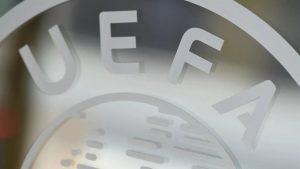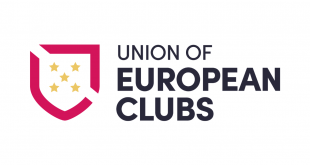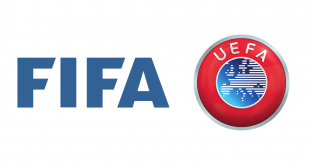 The start of the EURO 2024 programme and continuation of the recently implemented Women’s Champions League testing strategy are key elements of UEFA’s anti-doping activities this season.
The start of the EURO 2024 programme and continuation of the recently implemented Women’s Champions League testing strategy are key elements of UEFA’s anti-doping activities this season.
In addition to testing, UEFA is also putting anti-doping education activities at the forefront of its drive to maintain football’s precious integrity.
UEFA: An experienced anti-doping campaigner
UEFA is recognised as one of the world’s leading team-sport organisations in the fight against doping. Its education and testing programmes remain at the cutting edge of science and recognised good practice in all areas of prevention and detection.
UEFA’s anti-doping mission
- Prevent doping and promote fair play
- Protect player health
- Protect the integrity of our competitions
- Ensure all players have an equal chance
- Protect the clean athletes
- Protect the spirit of sport
Testing: EURO 2024 plans on track
Meanwhile, as next summer’s UEFA EURO 2024 finals in Germany draw nearer, UEFA is putting a comprehensive anti-doping programme in place for the event.
The plan is to conduct testing at all 51 tournament matches, and in conjunction with NADOs and FIFA, players from the 24 teams taking part in UEFA EURO 2024 will be subject to intelligent target testing from the beginning of 2024 as part of the pre-tournament testing programme, before the competition gets under way on 14 June next year.
The target is to repeat the resounding success of UEFA’s comprehensive anti-doping programme implemented for UEFA EURO 2020.
Testing: Expanded Women’s Champions League testing
As part of UEFA’s overall vision to promote and strengthen women’s football and standards, UEFA has reinforced its testing activities in major women’s competitions by adding out-of-competition tests to its comprehensive in-competition testing strategy. The move saw an increased number of samples collected in the UEFA Women’s Champions League and at the last UEFA Women’s EURO in 2022.
This move is also reflected in an increase in the number of female UEFA doping control officers (DCOs) – the officials who carry out UEFA’s drug tests – from 11 to 18 in the past year.
Testing: Doping control officers (DCOs)
UEFA’s doping controls are all conducted by its own Doping Control Officers (DCOs), a dedicated group of medical doctors from all over Europe. New DCOs follow UEFA’s in-depth training programme, while all DCOs undergo regular auditing to ensure a uniformly high standard of procedure.
UEFA’s panel of 53 male and female doping control officers come from 28 countries. DCO candidates undergo comprehensive training and assessment to be accepted as part of the UEFA DCO panel.
Education: UEFA’s strategy bears fruit
UEFA remains at the vanguard of efforts to protect football not only through testing, but also thanks to an education drive that forms the bedrock of UEFA’s strategy.
UEFA’s new anti-doping education strategy kicked off in 2020 with the objective of ensuring that players receive relevant, high-quality anti-doping education at domestic level before participating in any UEFA competitions.
UEFA HatTrick funding has been allocated to UEFA’s 55 member associations to deliver those anti-doping education activities in collaboration with their national anti-doping organisation.
Through the collaboration, significant strides have been made in this area. An impressive 43,000 players and 5,300 players’ support personnel, such as team doctors and coaches, were included in the UEFA member associations’ comprehensive education plans last season.
Education: Anti-doping education platform
To enhance this educational effort, UEFA has introduced the ‘Anti-doping education platform’, an innovative digital resource for UEFA’s member associations. This platform offers an array of educational materials, including presentations on anti-doping, visual insights into players undergoing doping controls, and instructional videos on testing procedures.
Last season, UEFA hosted two webinars, attended by representatives from all member associations and NADOs, to review past HatTrick programme seasons and introduce new educational materials.
At the latest webinar in July, UEFA unveiled its vision for the 2023/24 season, underpinned by HatTrick VI regulations which particularly emphasise the importance of education for youth national teams, including face-to-face sessions for teams before UEFA youth competitions.
“At UEFA, we are convinced that education is a fundamental pillar in the fight against doping,” says UEFA’s anti-doping head Marc Vouillamoz. “It is, in fact, the first line of defence to protect the rights of our players and the integrity of football.
“It is crucial that, as a minimum requirement, players from national teams and clubs that qualify for UEFA competitions receive education prior to competing at international level.”
Education: Club team doctor webinar
Recognising the key role that football doctors play in helping players to remain clean, UEFA recently organised a club team doctor webinar to bolster anti-doping awareness in football.
Key takeaways include recommended yearly monitoring of the World Anti-Doping Agency (WADA) list of prohibited substances, tips on how to check what is prohibited, and clarity on substances prohibited in and out of competition.
The session spotlighted the Therapeutic Use Exemption (TUE) process – which ensures that athletes can be treated for medical conditions even if the treatment involves using a prohibited substance or method, thereby avoiding the risk of being sanctioned.
The webinar also highlighted the risks of supplement and meat contamination, and emphasised team doctors’ role in doping control support. The session upheld UEFA’s commitment to fair play, health, and education.
UEFA Managing Director of Integrity & Regulatory, Angelo Rigopoulos said, “At UEFA, our relentless pursuit of a doping-free sporting arena is upheld by three indispensable pillars: education, testing, and intelligence. As a global leader, we persistently push the boundaries to keep our education and testing programmes at the forefront of scientific advancement and established best practices, guarding the integrity of our commitment to prevention and detection.
“UEFA is undeniably a leading force in the worldwide fight against doping. We persistently elevate our education and testing initiatives to the vanguard of scientific innovation and acknowledged excellence, fortifying the very core of our dedication to prevention and detection.”
 Arunava about Football A look at football & the world through my eyes!
Arunava about Football A look at football & the world through my eyes!



